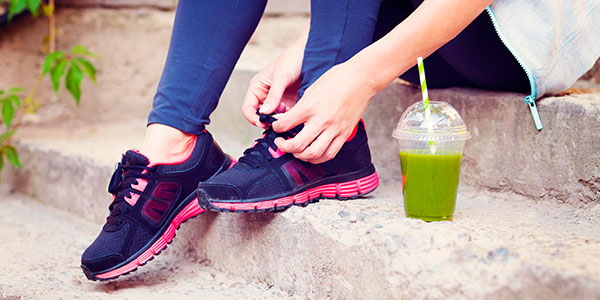You don’t need to be an athlete to get athlete’s foot. Along with plantar warts, it’s one of the most common skin infections that affect feet. At best, these conditions can be irritating and sometimes painful; but at worst they may lead to other more serious infections. Here’s how to identify and avoid them.
Fungal or Viral?
Athlete’s foot, the most widespread fungal foot infection, usually starts between the toes and causes red bumps or scaly, dry areas on your skin that itch, sting or burn. The same fungus on your hands if you touch your infected feet and don’t wash your hands afterwards.
Plantar warts are caused by human papillomavirus (HPV). These hard, grainy growths on the bottoms of your feet are the same as warts that might grow on other parts of your body, but they’re more painful because they get embedded as you walk. You can often spot a plantar wart by a small dark dot in the center.
Don't Go Barefoot
Both fungal and viral infections are highly contagious; you could catch either if your feet come into contact with a contaminated surface or tool (for example, bare floors or even pedicure equipment). The good news: they’re easy to dodge if you take a few simple precautions.
“People often come in contact with viral and fungal infections in gyms, health clubs and yoga studios,” says Michael DiGiacomo, D.P.M., a podiatrist at Alta Bates Summit Medical Center in Oakland. “I recommend that you never walk barefoot in those public areas.” Use flip-flops in common showers; when you need to take them off, stand on a dry towel rather than the bare floor. In yoga studios, enter in stocking feet and use your own yoga mat.
You could even get an infection walking barefoot through the airport security scanner. Wear socks so that you’re protected when you need to take off your shoes, or sign up for TSA Pre-Check so you don’t have to remove your shoes at all!
Wear Dry Shoes
Since fungi live in warm, humid environments, you can also get athlete’s foot by wearing shoes that don’t completely dry out. If you’re prone to fungal infection, don’t wear the same shoes two or more days in a row. Alternating shoe pairs gives them at least 24 hours to dry completely, which kills any fungus.

If you buy “leather” closed-toe shoes, make sure they’re real leather. “Shoes with manmade covers, like fake leather or plastic, don’t breathe and thereby promote fungal growth,” Dr. DiGiacomo says.
Finally, stay clear of foot and sneaker sprays. They may help decrease shoe odor, but “many people think they also dry shoes out when in reality they make them wetter,” says Dr. DiGiacomo.
Fight Fungus
If you do get athlete’s foot, you may be able to treat it on your own. Start with an over-the-counter fungal medication. If that doesn’t get rid of it in two to four weeks, talk to your podiatrist about a prescription-grade antifungal cream.
If you have excessively sweaty feet, your podiatrist may also prescribe topical medication that decreases foot wetness so that your shoes can stay dry.
Be sure to treat any fungal infection. If you don’t, it could attack your toenails. You’ll know if you have infected toenails if they thicken and turn brown or yellow.
Even worse, an untreated fungal infection could evolve into a bacterial infection. Fungi create openings in the skin, allowing bacteria to enter. That could lead to cellulitis, a bacterial infection of the soft tissue. If you have pain, pus, redness or fever, talk to your doctor right away.
Treat Bacteria
When you see a wart, don’t wait; bacterial infections can spread if left untreated. As with fungal infections, you can start with over-the-counter medications for warts.
If that doesn’t help, talk to your doctor about prescription drugs that create an inflammatory response that slowly kills warts—a process that may take up to six to eight weeks. Also ask your doctor about excision, or surgical removal.
More Resources
Healthwise Resource Library
Look up helpful health information.
Patient Information
Practical info for Sutter patients.
Tools and Quizzes
Online tools to help you make decisions about your health.









